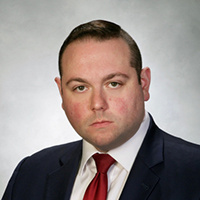Lafayette Hill White Collar Crime Lawyer, Pennsylvania
Sponsored Law Firm
-
 x
x

Click For More Info:
-
James E. Crawford, Jr. & Associates, LLC
999 Corporate Blvd. Suite 100 Linthicum, MD 21090» view mapCriminal Defense, Divorce & Family Law Move Forward With Confidence
Our Firm's team of family, criminal, and business lawyers understand that each case presents unique challenges and must be met with equally unique approaches.
800-789-9220
Zak Taylor Goldstein
✓ VERIFIEDCriminal, Felony, Misdemeanor, DUI-DWI, White Collar Crime
Philadelphia Criminal Defense Attorney
Zak Goldstein is a Philadelphia criminal defense and civil rights attorney. Zak Goldstein has experience trying hundreds of cases before judges and ju... (more)
Richard John Fuschino
✓ VERIFIEDCriminal, Felony, White Collar Crime, Federal Trial Practice, Federal Appellate Practice
Protecting Your Freedom and Your Reputation
If you are facing criminal charges in the Pennsylvania state or federal courts, you want a law firm with the experience, guts and the dedication to fi... (more)
Sharon Devins Block
Environmental Law, Family Law, White Collar Crime, Criminal
Status: In Good Standing
William R. Spade
White Collar Crime, Criminal, Civil & Human Rights, Securities
Status: In Good Standing
William J. Murray
Complex Litigation, White Collar Crime, Consumer Rights, Business
Status: In Good Standing
Richard A. Levan
Litigation, White Collar Crime, Corporate, Business
Status: In Good Standing Licensed: 37 Years
 James Crawford, Jr. Linthicum, MD
James Crawford, Jr. Linthicum, MD Practice AreasExpertise
Practice AreasExpertise


